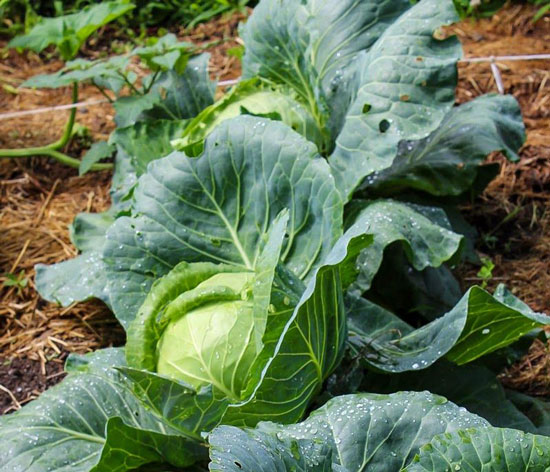
Faced with having to move somewhere with better rainfall, subsistence farmers in a southern Zimbabwe village instead turned to a different farming technique. Today they are smiling.
SPEICAL REPORT | BIRD AGENCY | When small-hold farmer Gift Chisvo was given land in Zimbabwe’s midlands in the early 2000s under a Land Reform Programme introduced by President Robert Mugabe, he initially battled to make use of the land.
“Before the land reform program, I resided in Hwange, where farming was impractical due to low rainfall and high temperatures. Upon securing a farming opportunity in Shashe, we encountered difficulties in revitalizing the region’s productivity through traditional farming methods,” explained Chisvo, who was born in Shashe.
White commercial farmers had ranched cattle in the area prior to being pushed out during the reforms. The village has had soils categorised as loamy to sandy and the new owners, who wanted to farm crops, experienced challenging conditions. After several failures, some like Chisvo considered leaving.
“The unfavourable soil conditions and irregular rainfall patterns posed significant challenges. As a result, we recognized the need to adopt alternative approaches to agriculture, and that’s when agroecology emerged,” Chisvo shared.
The area had become semi-arid and to address this issue, as well as improve the soil, smallholders began adopting agroecology techniques which are vital for enhancing resilience and strengthening the area’s ability to withstand and recover from the impacts of climate change.
“Rather than relocating, we decided to embrace agroecology techniques. This marked the beginning of a remarkable transformation, restoring sustainable agricultural practices in our area,” Chisvo said.
Agroecology techniques refer to a set of approaches in agricultural practices aimed at promoting sustainable and ecological farming methods.
Some common agroecology approaches employed by Chisvo and other farmers in the Shashe area include implementing crop rotations, diversifying crop species, integrating livestock into farming systems, employing organic farming methods such as the use of organic fertiliser, promoting natural pest control, mulching, soil fertility enhancement through techniques like composting and green cover cropping.
Local farmers employing these farming techniques to feed their families said almost all traditional farming methods proved to be unsustainable to restore the region’s productivity but through determination and the integration of agroecology approaches, a remarkable transformation began to unfold.
“The failure of our conventional farming methods to revive the region’s productivity sparked a need for us to change our approaches in farming. Instead of migrating, we decided to embrace agroecology techniques, and a remarkable transformation started to take place, demonstrating the potential to restore sustainable agricultural practices in our area. Our area has evolved into a learning area where farmers around Zimbabwe and beyond are now coming to our Shashe Agroecology School, a centre of agroecology, to learn how to employ agroecology in agriculture,” Chisvo further shared.
Another small-scale farmer in Shashe, Gracious Munhuru, said farmers now prioritise cultivating fresh, healthy produce to ensure their meals are sources of nourishment and well-being.
She said a commitment to agroecology approaches had not only benefitted their households but also inspired a larger movement towards a healthier future for their families.
“We are happy that we are now able to feed our families with fresh farm food. Agroecology practices have revolutionized our approaches in agriculture, leading to substantial improvements in our livelihoods and food security. With agroecology, we are doing very well. The shift towards organic farming methods has not only rejuvenated our land but also provided us with nutritious produce, ensuring a healthier life for our families,” Munhuru said.
“We will never starve here because we also grow grains like millet, sorghum and rapoko which are drought-resistant crops, meaning we can still have a bumper harvest during droughts,” she added.
Farmers in the Shashe area are members of the Zimbabwe Small Organic Farmers Forum (ZIMSOFF), which represents peasant families practising organic, traditional and agroecological agriculture in Zimbabwe.
The organisation was founded in 2002, during the World Summit on Sustainable Development in Johannesburg, South Africa, with the goal of improving the livelihoods of the country’s small-scale farmers.
The Shashe Agroecology School is also a member of La Via Campesina’s network of agroecology schools around the world, aimed at promoting the exchange of farming experiences through horizontal learning.
Zimbabwean agriculturist and Shashe resident, Norman Chipadze, said he had been impressed by the success of agroecological practices in the Shashe farming area, especially in the face of climate change.
“Agroecology approaches in agriculture, with its emphasis on sustainable and nature-based agricultural activity, have proven to be practical and effective approaches in Shashe. By employing agroecological practices such as organic fertilizers, diversified crop rotations, and water conservation techniques, these local farmers have not only safeguarded their livelihoods but also contributed to the sustainability of their farming,” Chipadze said.
“The collaborative spirit of working hard to turn a semi-arid region into an agricultural success story demonstrated by the farming community in Shashe is truly a beacon of hope for the future of agriculture in the face of climate change,” he added.
Regional Project Manager for Voluntary Service Overseas, a charity supporting small-scale farmers, Simba Guzha said agroecology was a welcome development in the region.
“Agroecology is playing a vital role in safeguarding and enhancing agriculture and food systems in response to climate-related shocks. The use of organic fertilizers and the utilization of green cover crops, which help bind the soil, have undoubtedly demonstrated their effectiveness as agroecological methods for replenishing degraded soils,” he said.
“You know, our primary objective is to educate local farmers about climate change and its implications on agricultural activities. Farmers must understand the profound impact of agroecology in mitigating these climate change effects. Also, we seek to enlighten our community about the promising future of agriculture through the adoption of agroecological practices in our region,” Guzha added.
Meanwhile, having realised that agroecology is becoming the future of farming in the wake of climate change, the Ministry of Agriculture urged other regions to join the Resilience Building through Agroecological Intensification in Zimbabwe (RAIZ), which was launched recently to support climate-smart agriculture and livelihoods in Zimbabwe.
“Agroecology initiatives in Zimbabwe are playing a crucial role in the country’s development, as they contribute significantly to enhancing resilience in the face of climate shocks. By implementing agroecology initiatives, the country can bounce back and overcome challenges related to resilience. Therefore, these agroecology initiatives serve as crucial projects aimed at strengthening the nation’s ability to withstand and recover from the impacts of climate change,” Prof Obert Jiri, Chief Director responsible for agricultural advisory services at the Ministry of Lands, Agriculture, Water, Fisheries and Rural Development, said.
Today, instead of migrating in search of more fertile soils and farms with more reliable rainfall patterns for agricultural activities, the farmers of Shashe are standing firm and against all odds – and expectations – have turned their area into a farming hub.
“From nutritious vegetables to farm-fresh eggs, tender chicken, succulent pork and an array of fish, residents in our nearby towns have access to a wide variety of locally sourced products and we are enhancing food options in their towns and we are proud of ourselves,” Chisvo concluded.
****
SOURCE: Takudzwa Changadeya, bird story agency
 The Independent Uganda: You get the Truth we Pay the Price
The Independent Uganda: You get the Truth we Pay the Price


